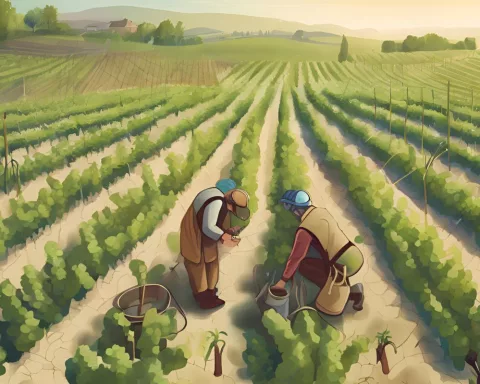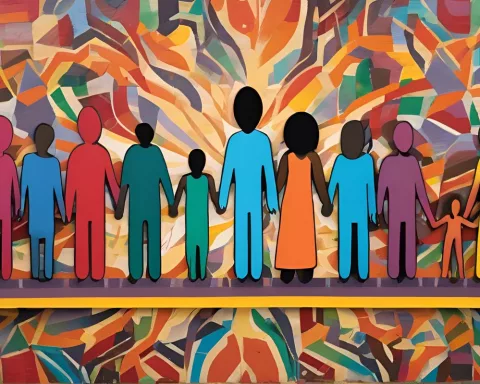South Africa’s education reform prioritizes the professionalization of teachers, from initial training to continual development. The Deputy Minister of Higher Education, Science, and Innovation, Mr. Buti Manamela, discussed the challenges and initiatives in achieving this goal, emphasizing the importance of collaboration among governmental bodies, educational institutions, and educators. He also highlighted the concern of artificial intelligence in teaching and the need for a policy to address its impact. By investing in teacher development, South Africa is working towards a strong and inclusive education system.
South Africa’s Education Reform: An Emphasis on Educator Professionalization
South Africa’s education reform emphasizes the professionalization of teachers as an essential element. The journey starts with initial teacher training, progressing with registration with bodies such as SACE, introduction into the teaching profession, and continual professional development. Collaboration among governmental bodies, educational institutions, and educators is pivotal to comprehensive and effective policies nurturing teacher progress and efficiency.
South Africa is widely appreciated for its dedication to the reform of its education system. The country’s transformative journey from an apartheid state to a democratic entity has initiated a variety of changes across all sectors – education being a prominent one. The path to ensuring high-quality education accessible to every South African has been filled with obstacles. This complex voyage was effectively examined by the Deputy Minister of Higher Education, Science, and Innovation, Mr. Buti Manamela, in his speech at the International Task Force on Teachers for Education 2030 – 14th Policy Dialogue Forum and Governance Meeting on 27 February 2024.
Mr. Manamela’s thought-provoking dialogue encompassed a broad range of subjects, such as historical background, current policy, the professionalization pathway, departmental initiatives, strategic alliances across government, and the influence of artificial intelligence on teaching. His insights into these subjects illuminated the present state of South Africa’s education system and highlighted the critical role teachers perform in nation-building.
South Africa’s Education Reform: An Emphasis on Educator Professionalization
One of the pivotal aspects of South Africa’s education reform is the comprehensive institutional and policy framework established to assure quality education for all. Teacher professionalization was pinpointed as an essential element for the reform of education policy. In the context of South Africa, this called for breaking down past injustices and creating an education system representative of a rights-based, democratic nation.
The current policy scenario displays a positive inclination towards teacher professionalization. However, a supportive policy environment doesn’t necessarily rule out policy loopholes. These gaps underline the persistent challenges in the execution of education policies and call for continuous research and evidence-backed intervention, underscoring the dynamic nature of policy formation and execution.
Mr. Manamela’s description of the professionalization journey starts with initial teacher training, progressing with registration with bodies such as the South African Council for Educators (SACE), introduction into the teaching profession, and continual professional development. This journey underscores the significance of collaboration among governmental bodies, educational institutions, and educators. This collective effort results in comprehensive and effective policies, nurturing the progress and efficiency of teachers.
Departmental Initiatives and Strategic Alliances in the Domain of Education
The Department of Higher Education and Training has implemented several initiatives to ensure the ongoing professionalization of teachers. The National Policy Framework for Teacher Education and Development in South Africa, established in 2007, was focused around two primary goals: producing more teachers and enhancing teacher quality. The framework acknowledged the insufficient preparedness of teachers to meet the demands of an emerging democracy in the rapidly changing global context of the 21st century. To address these challenges, the department significantly amplified the number of graduates from 6,000 in 2000 to nearly 30,000 in 2023.
Strategic collaboration across governmental bodies has been a vital factor in implementing these initiatives. The Department of Basic Education, for instance, has strengthened efforts for teacher professionalization through the Funza Lushaka bursary scheme. Furthermore, the Department of Higher Education and Training has supported universities in developing knowledge and practice standards for primary Maths and literacy and offering special needs and inclusive teaching programs.
Artificial Intelligence in Teaching and the Concerns It Raises
The final issue highlighted by Mr. Manamela was the impact of artificial intelligence (AI) on teaching practices. While AI holds potential for enhancing the quality of teaching, the absence of a policy regarding AI usage in teaching and education raises significant concerns. Young professionals are growing increasingly apprehensive about technologies that can produce misleading information and neglect to incorporate diverse perspectives.
In his address, Mr. Manamela exhibited profound comprehension of the intricacies of education reform. His insights offered a thorough understanding of South Africa’s education sector, emphasizing the crucial role of teacher professionalization in establishing a strong education system. By investing in teacher development, South Africa is not only tackling current challenges but also setting the stage for the future. This commitment reflects the belief that everyone should have the opportunity to live a dignified life – a belief that is fundamental to a truly democratic society.
What is the main focus of South Africa’s education reform?
South Africa’s education reform prioritizes the professionalization of teachers, from initial training to continual development.
Why is collaboration among governmental bodies, educational institutions, and educators important to achieve this goal?
Collaboration among these groups is pivotal to comprehensive and effective policies nurturing teacher progress and efficiency.
What is the concern about artificial intelligence in teaching?
The absence of a policy regarding AI usage in teaching and education raises significant concerns, as young professionals are growing increasingly apprehensive about technologies that can produce misleading information and neglect to incorporate diverse perspectives.
What initiatives has the Department of Higher Education and Training implemented to ensure ongoing professionalization of teachers?
The department has implemented the National Policy Framework for Teacher Education and Development, significantly amplifying the number of graduates, and has supported universities in developing knowledge and practice standards for primary Maths and literacy and offering special needs and inclusive teaching programs.
What is the significance of teacher professionalization in establishing a strong education system?
The significance of teacher professionalization in establishing a strong education system is crucial, and South Africa is investing in teacher development to not only tackle current challenges but also set the stage for the future.
Why is South Africa’s education reform considered a transformative journey?
South Africa’s education reform is considered a transformative journey because the country’s journey to ensuring high-quality education accessible to every South African has been filled with obstacles, and it highlights the critical role teachers perform in nation-building.












